Disclosure: This article contains affiliate links. We may earn a commission from purchases at no extra cost to you, which helps our travel content.
There's something uniquely satisfying about shopping in Fukuoka that I've rarely experienced elsewhere in my decades of travel. Perhaps it's the juxtaposition of ancient mercantile traditions alongside cutting-edge retail concepts, or maybe it's the meticulous Japanese attention to detail that elevates even the most mundane purchase into something memorable. Having first visited this dynamic city fifteen years ago while researching a feature for Travel & Leisure, I've returned numerous times, watching its retail landscape evolve while maintaining its distinct character. What strikes me most about Fukuoka's shopping scene is its remarkable accessibility – unlike the overwhelming urban sprawl of Tokyo or the historical labyrinth of Kyoto, this compact city offers diverse retail experiences within walking distance or a short subway ride. Whether you're seeking handcrafted ceramics from generational artisans, cutting-edge fashion from emerging designers, or simply the perfect omiyage (souvenir) to bring home, Fukuoka delivers with characteristic efficiency and unexpected charm.
Canal City: Fukuoka's Architectural Retail Marvel
The first time I encountered Canal City, I was genuinely taken aback. This isn't merely a shopping mall; it's an architectural statement piece – a 'city within a city' as its developers aptly describe it. The complex's defining feature, a 180-meter canal winding through its core, creates an atmosphere more reminiscent of a Venetian plaza than a Japanese shopping center.
Designed by American architect Jon Jerde, Canal City houses over 250 shops, cafés, theaters, and hotels across its vibrant terracotta-colored buildings. The space feels simultaneously intimate and expansive, with multiple levels offering different vantage points of the central water feature, which hosts spectacular fountain shows hourly.
While international brands like Uniqlo and H&M maintain flagship stores here, I've found the most compelling offerings in the upper floors' boutiques showcasing local designers. Particularly noteworthy is 'Fukuoka Products,' a well-curated shop featuring items exclusively made in the prefecture – from Hakata dolls to contemporary housewares that reflect the region's aesthetic sensibilities.
Rathion the 5th floor deserves special attention for fashion enthusiasts. This collection of small-scale Japanese designers offers pieces you simply won't find outside Japan, with staff who approach customer service as an art form. On my last visit, I purchased a remarkably versatile travel blazer that has become a staple in my suitcase – lightweight enough for Christchurch summers yet sufficiently structured for meetings in more formal settings.
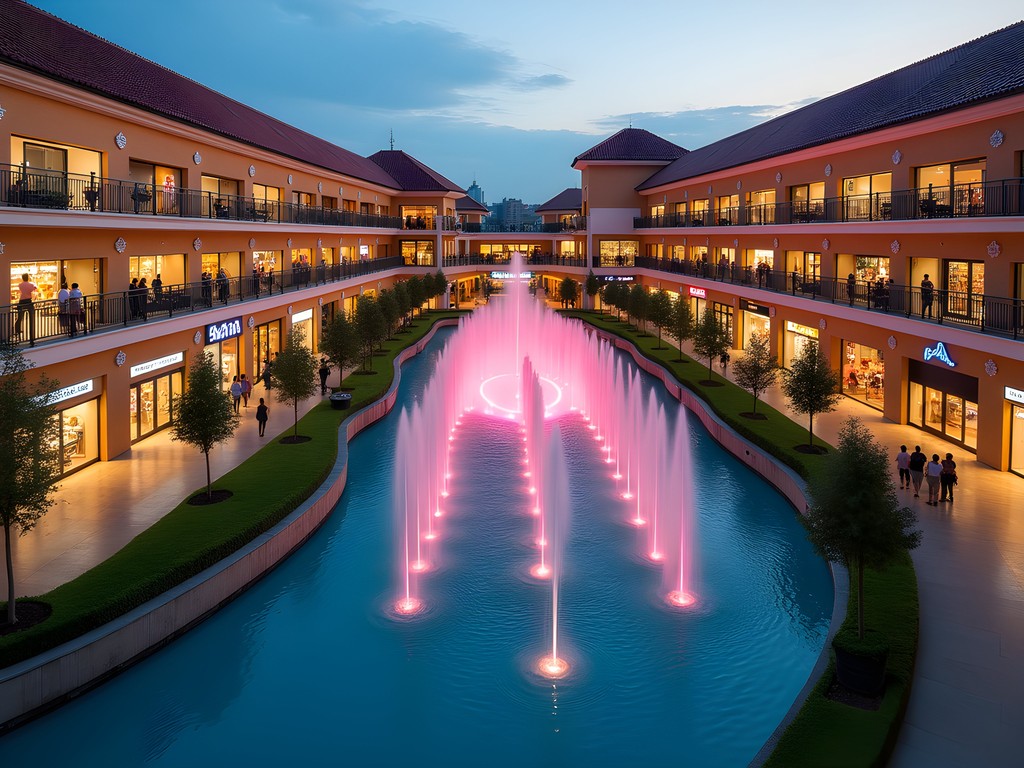
💡 Pro Tips
- Visit the canal's main fountain show at 6pm for the most spectacular water-and-light performance
- The 5th floor offers tax-free shopping services with English-speaking staff for foreign visitors
- The basement level Ramen Stadium features eight distinct regional styles of Japan's beloved noodle dish – perfect for a shopping break
Kawabata Shopping Arcade: Tradition Meets Modern Retail
While Fukuoka embraces contemporary retail concepts, its traditional shopping arcades offer a glimpse into everyday Japanese life that feels increasingly rare in this age of homogenized consumption. Kawabata Shopping Arcade, dating back to the early 1900s, stretches for nearly 400 meters along what was once the city's main commercial thoroughfare.
What distinguishes Kawabata from similar arcades I've explored throughout Asia is its seamless blend of old and new. Venerable family businesses selling traditional crafts operate alongside trendy cafés and contemporary boutiques. The covered walkway provides welcome shelter during Fukuoka's notoriously unpredictable weather patterns, creating a comfortable shopping environment regardless of conditions outside.
I make a point of visiting Shimojima, a kitchenware shop that has operated here for generations. Their selection of Japanese knives represents extraordinary value – I've purchased several as gifts for culinary-minded friends back in New Zealand, each one hand-selected by the proprietor based on the recipient's cooking style. For those serious about Japanese cuisine, their Santoku knife offers professional-grade quality at a fraction of what you'd pay in Western markets.
Further along the arcade, Hakata Yamakasa Gallery provides insight into one of Fukuoka's most important festivals through displays of ceremonial floats and historical photographs. The small gift shop offers festival-themed items you simply won't find elsewhere – I'm particularly fond of their tenugui (hand towels) featuring traditional Yamakasa motifs, which make elegant, lightweight souvenirs.
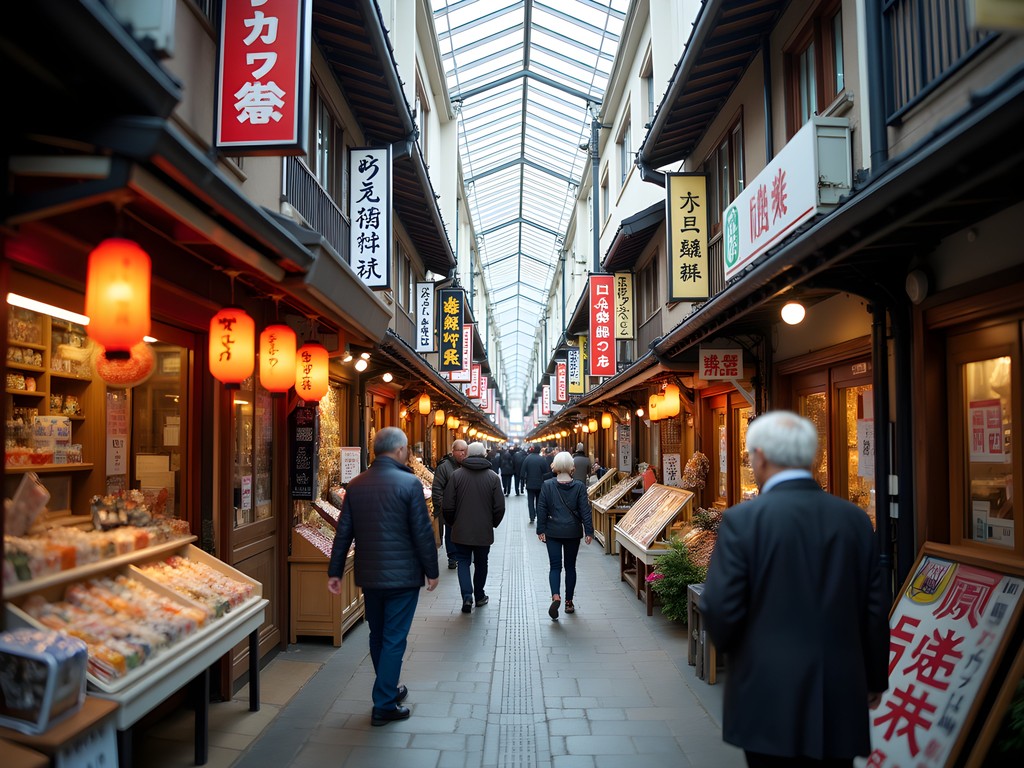
💡 Pro Tips
- Visit early weekday mornings to see local seniors gathering for tea and conversation at traditional shops
- Many smaller establishments still operate on cash-only basis – come prepared with yen
- Look for shops displaying the 'Hakata Traditional Craft' seal for authentic local products
Tenjin Underground Shopping Mall: Subterranean Style
When summer humidity becomes oppressive or winter winds bite too sharply, Fukuoka residents head underground. The Tenjin Underground Shopping Mall (locally known as 'Tenchika') spans an impressive 590 meters beneath the city's central business district, connecting multiple subway stations and department stores in a labyrinth of retail therapy.
What fascinates me about Tenchika is how it defies the typical basement mall aesthetic. Rather than feeling claustrophobic, the wide corridors, high ceilings, and thoughtful lighting design create an environment that's surprisingly airy. Over 150 shops line these underground passages, ranging from fast fashion outlets to specialty stores selling distinctly Japanese products.
I've developed something of a ritual when visiting Tenchika. My first stop is always Ishimaru Denki, an electronics retailer where I stock up on uniquely Japanese gadgets. Their selection of travel adapters and portable charging solutions is particularly comprehensive – I recently purchased a compact power bank that's become indispensable during my frequent flights between New Zealand and Asia.
For fashion enthusiasts, UNIQLO's flagship underground store offers Japan-exclusive items not available at their international locations. The quality-to-price ratio here continues to impress me, particularly for basics and their innovative technical fabrics.
Perhaps most charming are the small, independently operated food shops selling everything from traditional wagashi (Japanese sweets) to contemporary fusion snacks. Fukuoka's culinary identity is proudly on display here, with many establishments offering samples – an excellent way to discover local specialties without committing to a full meal.
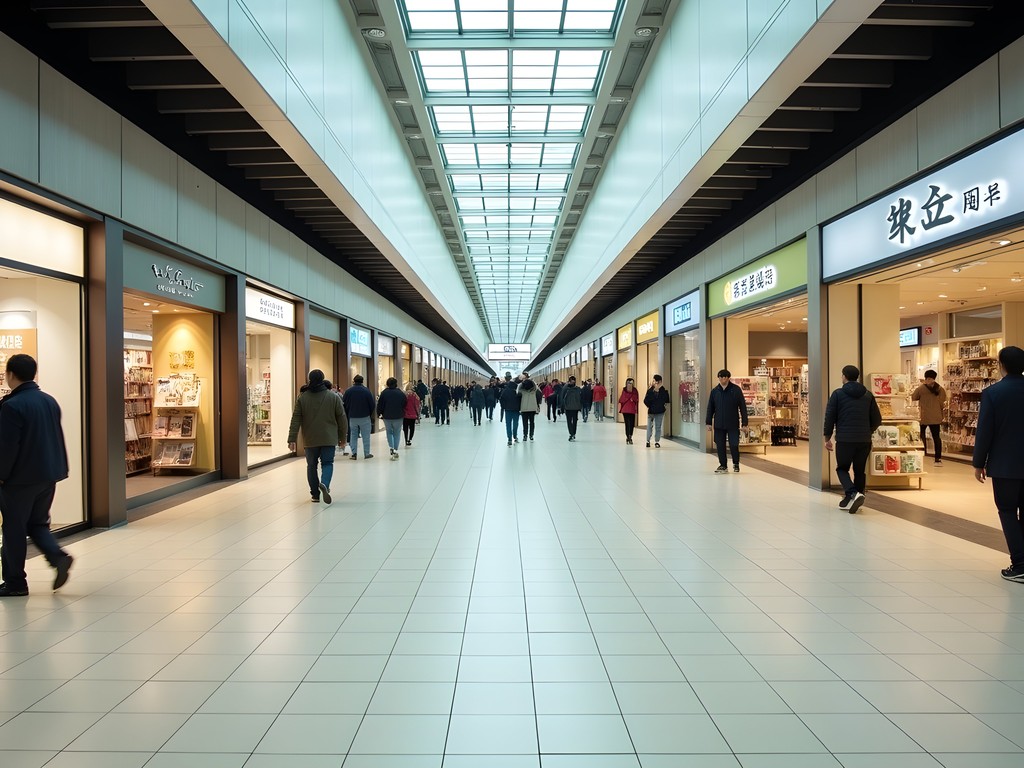
💡 Pro Tips
- The mall connects directly to Tenjin Station, making it an ideal starting point for exploring the city center
- Look for the 'Fukuoka Limited' signs indicating products available only in this region
- Visit during weekday afternoons to avoid the commuter rush hours when passages become crowded
Daimyo: The Bohemian Quarter for Discerning Shoppers
For those seeking retail experiences with more character than corporate backing, Fukuoka's Daimyo district represents the city's creative heartbeat. Located just west of the bustling Tenjin area, this neighborhood has transformed from a residential zone to a haven for independent retailers, vintage shops, and concept stores that wouldn't feel out of place in Brooklyn or Berlin.
What distinguishes Daimyo from similar creative districts I've explored globally is its distinctly Japanese approach to alternative retail – immaculately presented, meticulously curated, and unfailingly polite. The narrow streets reveal surprising finds: converted machiya (traditional wooden townhouses) now housing avant-garde fashion boutiques, former residences transformed into gallery-cafés, and contemporary concrete structures containing multi-brand select shops.
Vintage enthusiasts will find particular joy in Daimyo's secondhand clothing stores. Unlike the chaotic treasure hunts often associated with vintage shopping elsewhere, Japanese resale shops present their wares with museum-like precision. At Harlequin Squash, each garment – whether a 1950s Americana piece or 1980s Japanese designer item – is impeccably cleaned, repaired if necessary, and displayed with reverence for its provenance.
For those interested in contemporary Japanese design, I recommend Melsele, a concept store showcasing emerging designers alongside established names. Their housewares section features exceptionally crafted items that manage to be both functional and sculptural – I've purchased several ceramic pieces here that now occupy pride of place in my Christchurch home.
When shopping fatigue inevitably sets in, the district offers numerous independent cafés serving specialty coffee and thoughtfully prepared light meals. My personal favorite is Transit Coffee, where I often spend afternoons reviewing my purchases while making notes in my travel journal – an old habit from my editorial days that digital alternatives have never quite replaced.
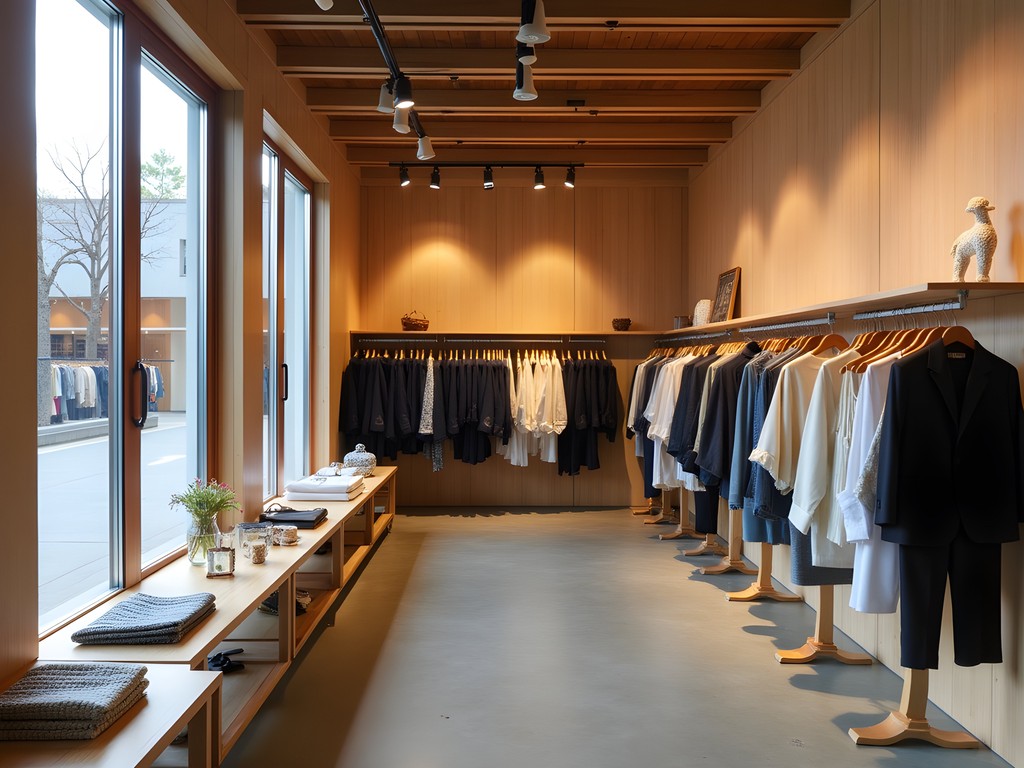
💡 Pro Tips
- Many shops in Daimyo open later (around 11am) and stay open into the evening – plan accordingly
- Vintage clothing sizes tend to run smaller than contemporary Western sizing
- Most boutiques welcome browsing but expect a higher level of care when handling merchandise than you might in Western shops
Yanagibashi Market: A Culinary Shopping Adventure
While not traditionally included in shopping guides, no retail exploration of Fukuoka would be complete without visiting Yanagibashi Market. Often called 'Fukuoka's Kitchen,' this wholesale fish market has served local restaurants and discerning home cooks for over 100 years. Unlike Tokyo's famous Tsukiji (now Toyosu) market, which has become predominantly tourist-oriented, Yanagibashi maintains its authentic working atmosphere.
I first discovered this market during a culinary research trip in 2010, guided by a local chef who sourced ingredients here daily. The experience was revelatory – not merely for the stunning array of seafood but for the glimpse into Fukuoka's food culture that you simply can't access through more conventional retail channels.
The market operates primarily in the early morning hours, with the most animated trading occurring between 3:00 and 7:00 AM. However, casual visitors will find 8:00 to 10:00 AM more accommodating, as the wholesale business winds down and shops become more welcoming to browsers. During these hours, you'll see local restaurateurs completing their daily shopping alongside elderly neighborhood residents selecting the evening's dinner ingredients.
Beyond seafood, the market houses excellent produce vendors, specialty pickle shops, and kitchenware stalls selling professional-grade tools at reasonable prices. For travelers with access to cooking facilities, this is an unparalleled opportunity to source ingredients for a memorable meal. Even without cooking options, the market offers numerous take-away items perfect for picnic lunches.
For food enthusiasts seeking a tangible connection to their travels, I recommend investing in a Japanese cooking knife from one of the market's cutlery specialists. Unlike tourist-oriented shops elsewhere, these vendors cater primarily to professionals, offering authentic quality at fair prices. The shopkeepers take genuine pride in matching customers with the ideal knife for their cooking style – a level of service increasingly rare in our automated age.
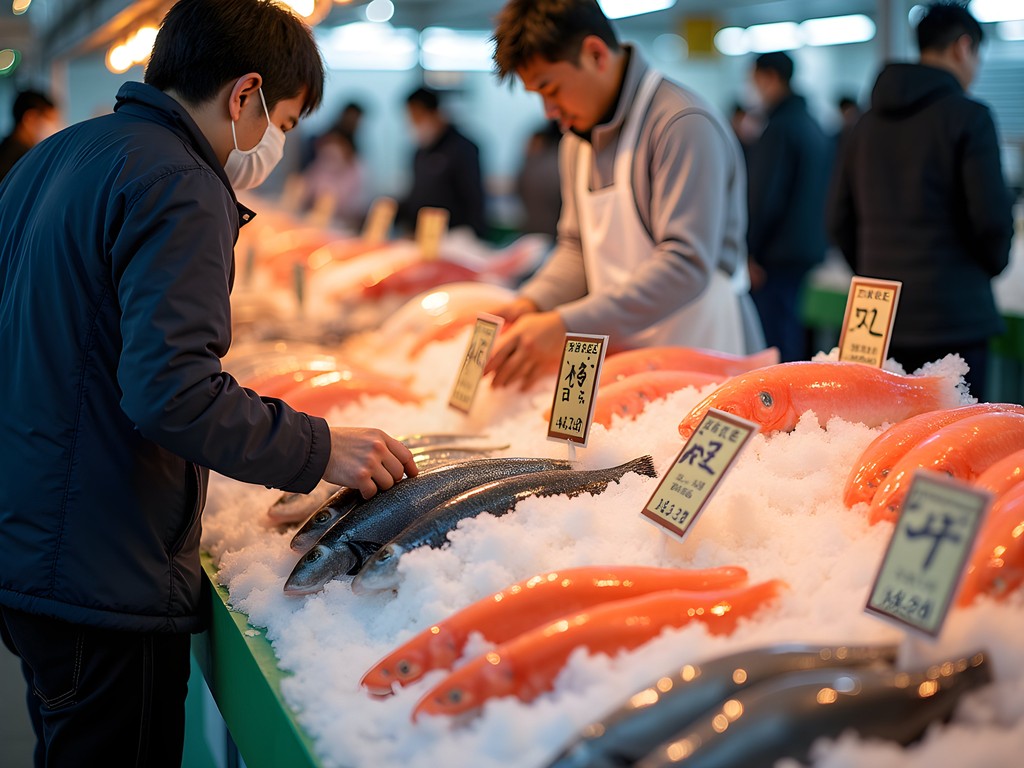
💡 Pro Tips
- Bring cash – most vendors don't accept credit cards
- Photography is acceptable but ask permission before taking close-up shots of vendors or their merchandise
- Don't touch fish or seafood without permission – point or ask the vendor to show you items of interest
Final Thoughts
What makes Fukuoka truly exceptional for shopping enthusiasts isn't merely the diversity of its retail landscape but the thoughtful intentionality behind each purchase opportunity. From the architectural ambition of Canal City to the generations of expertise concentrated in Yanagibashi Market, shopping here transcends mere transaction – it becomes cultural immersion. As someone who has witnessed retail environments evolve globally over decades, I find Fukuoka's approach refreshingly balanced: embracing innovation while honoring tradition, welcoming international influence while maintaining local identity. Whether you're a serious collector seeking Japanese craftsmanship, a fashion enthusiast exploring emerging designers, or simply a curious traveler wanting meaningful souvenirs, Fukuoka rewards those willing to look beyond the obvious. On your next visit, allow yourself to wander beyond the main shopping districts – the most memorable finds often await down unassuming side streets, behind modest storefronts, or in conversations with passionate proprietors eager to share their specialized knowledge.
✨ Key Takeaways
- Fukuoka offers an exceptionally diverse shopping landscape within a manageable urban footprint
- The city balances traditional retail experiences with cutting-edge concept stores and department stores
- Local craftsmanship remains strong, with many opportunities to purchase directly from artisans or specialized vendors
📋 Practical Information
Best Time to Visit
year-round, though spring (March-May) and autumn (October-November) offer the most pleasant weather for walking between shopping districts
Budget Estimate
$$$-$$$$ (varies widely depending on purchases, but luxury shopping opportunities abound)
Recommended Duration
2-3 days minimum to explore major shopping districts properly
Difficulty Level
Easy - Most Major Shopping Areas Are Accessible Via Subway And Concentrated In Walkable Districts
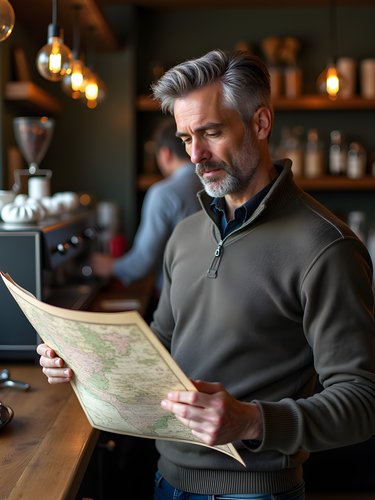
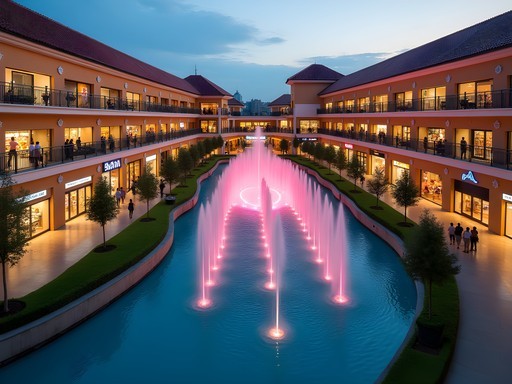
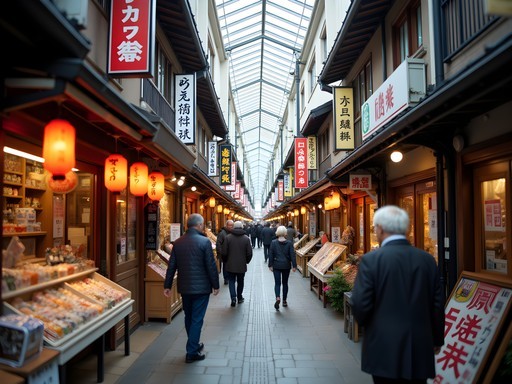
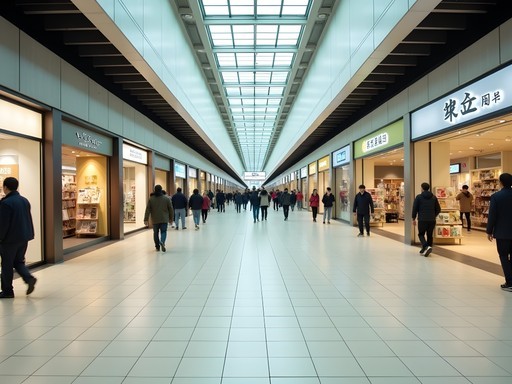
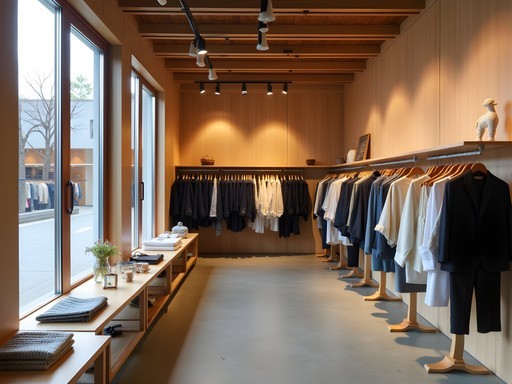
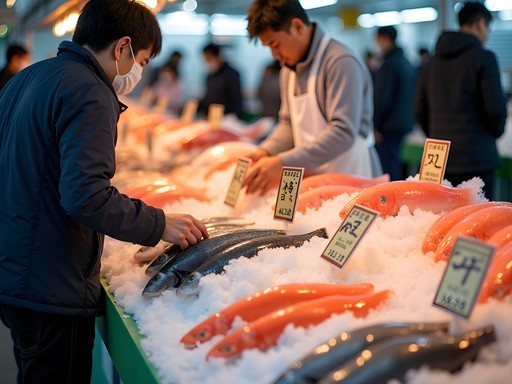


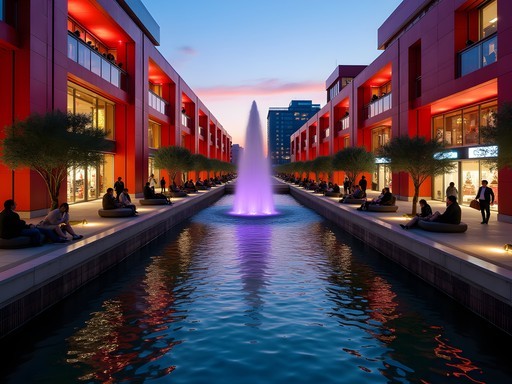
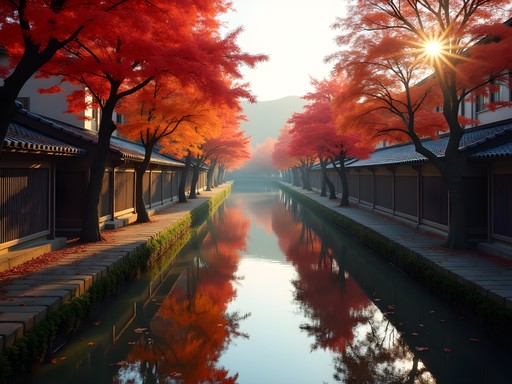
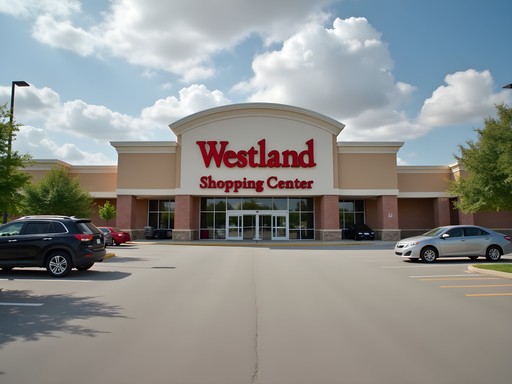
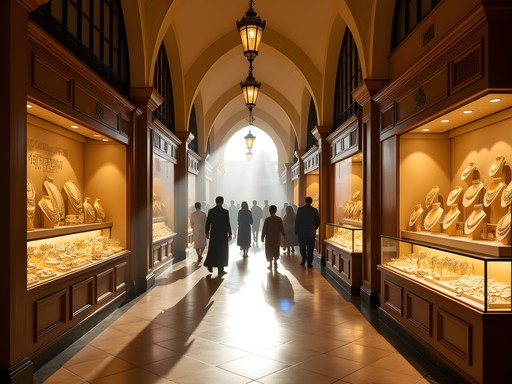
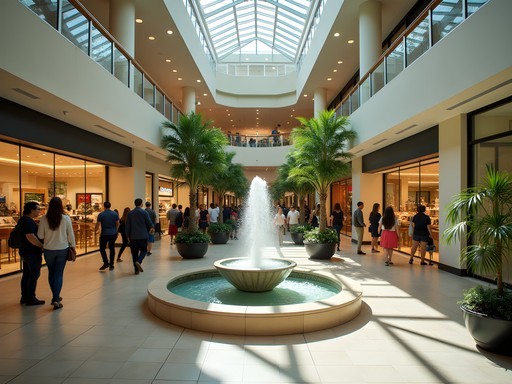
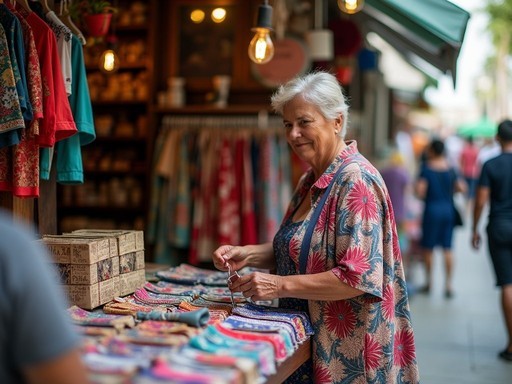
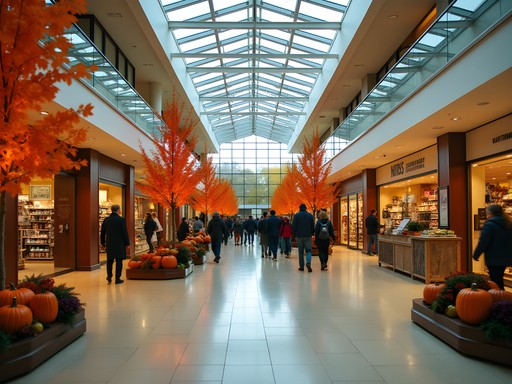
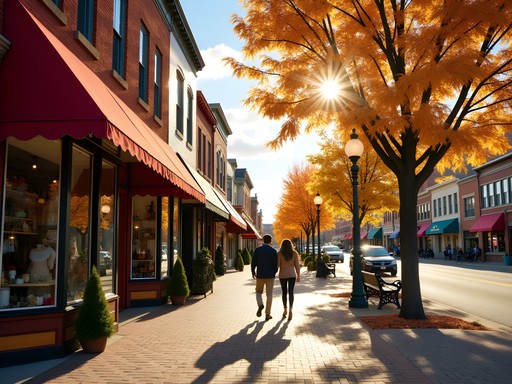
Comments
Sophia Gomez
David, this brings back such great memories! I had a layover in Fukuoka last October and ended up extending my stay just to explore Daimyo. There's this tiny boutique on a side street - I think it was called SHIP? - that had the most incredible selection of Japanese streetwear brands I'd never heard of. Ended up shipping a box home because I bought so much. The owner spoke perfect English and gave me recommendations for other shops in the area. That neighborhood has such a different vibe from the rest of Fukuoka's shopping districts. Less touristy, more local creatives.
adventurelegend
SHIP is awesome! I found that place too, totally by accident
Sophia Gomez
David, your post brought back amazing memories of my business trip to Fukuoka last year! Canal City is exactly as you described - an architectural marvel. I spent an entire evening just watching the water fountain shows while enjoying matcha ice cream. One thing I'd add for your readers: the Tenjin Underground Mall saved me during an unexpected rainstorm! It's not just great shopping but perfect for navigating the city when weather turns. I discovered this incredible little shop selling handcrafted leather goods that I still get compliments on. I used my pocket translator extensively in the smaller boutiques in Daimyo where English wasn't as common, and it made for some wonderful interactions with shop owners. Your guide is spot-on about the intentionality of Fukuoka's retail experience!
TravelBug92
That fountain show at Canal City is incredible! Did you catch the evening light display too?
Sophia Gomez
Yes! The evening light show was magical - definitely worth staying for if anyone's planning a visit.
nomadpro
Great post! I'm heading to Fukuoka next month with limited luggage space. Any recommendations for small but meaningful souvenirs from the markets you mentioned?
Sophia Gomez
Not the author but I was just in Fukuoka! The traditional crafts at Kawabata Shopping Arcade are perfect for small souvenirs - I got beautiful chopsticks and some handmade washi paper items that barely took up any space. Canal City has some cool Fukuoka-themed stationery too!
nomadpro
Thanks Sophia! Chopsticks sound perfect. Did you need to bargain at the markets or are prices fixed?
Sophia Gomez
Most places have fixed prices, but I found some vendors at the smaller stalls were open to small discounts if you buy multiple items. Definitely worth a try!
freephotographer
Great shots of Kawabata!
islandway
Quick question - is the Tenjin underground mall easy to navigate? I always get lost in underground shopping areas lol. Going to Fukuoka in March!
Sophia Gomez
It's actually pretty well signed! I was there for a business trip last fall and was worried about the same thing. They have color-coded sections and lots of English signage. Just grab a map at one of the entrances and you'll be fine!
adventurelegend
Canal City is INSANE!! I went last year and spent like 4 hours there just wandering around. The fountain shows are so cool and there's this ramen stadium on one of the floors that blew my mind. Did you try any of the ramen places David? Also totally agree about Daimyo - found some amazing vintage shops there that I still think about lol
vacationbuddy
Wait there's a whole ramen stadium?? That sounds amazing!
adventurelegend
YES! It's called Ramen Stadium and has like 8 different ramen shops all in one area. You can try different styles from all over Japan
Timothy Jenkins
Fantastic guide, David! Having visited Fukuoka three times now, I can confirm your assessment is spot-on. For anyone planning a trip, I'd recommend allocating at least one full day just for Tenjin Underground and Canal City. What I love about Fukuoka's shopping scene is how distinctly different each area feels. For vintage fashion enthusiasts, the little shops around Daimyo are absolute treasure troves - I found a pristine 1970s Japanese denim jacket that's now my prized possession. One small addition: the Hakata Riverain mall connected to the Nakasu-Kawabata subway station has some excellent electronics stores if you're hunting for uniquely Japanese gadgets. I documented my shopping adventures with my compact camera which was perfect for capturing the vibrant market scenes without drawing attention.
greenmaster
Thanks for the Hakata Riverain tip! Planning to visit next month and definitely adding that to my list.
journeydiver
Just got back from Fukuoka last month and this guide would have been SO helpful! The Kawabata Shopping Arcade was my favorite - found these amazing handcrafted chopsticks that the shop owner personalized for me on the spot. Wish I'd known about the Daimyo district though - sounds exactly like my style. One tip I'd add: bring a foldable tote bag in your daypack. I bought so much more than expected and had to buy an extra bag for the flight home! Also, many smaller shops still prefer cash, so keep some yen handy even though most bigger places take cards.
smartclimber
I've been to shopping districts all over Asia and Fukuoka definitely has a unique vibe. Loved how Daimyo had this perfect mix of trendy and traditional. The coffee shops between boutiques were perfect for recharging. If you're into stationery like me, don't miss the tiny paper goods stores near Tenjin station - Japanese notebooks and pens are next level!
greenlegend
Omg yes to the stationery shops!! I spent way too much on washi tape lol
freemate
Just got back from Fukuoka last week and this post is making me want to return already! Kawabata Shopping Arcade was my favorite - found these amazing handmade ceramics for way cheaper than I expected. Pro tip: the shops toward the end of the arcade have better prices than the ones at the entrance. Anyone else notice this?
Venture X
Premium card with 2X miles, $300 travel credit, Priority Pass